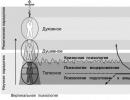Stephen Hawking Nobel Prize in Physics. A Swedish expert explained why Hawking never received a Nobel Prize
“He was a great scientist and an extraordinary man whose work and legacy will live on for many years to come. His courage and perseverance, with brilliance and humor, inspired people around the world. We will miss him,” the children of the physicist Robert and Lucy cite a statement.
Life and illness
Stephen Hawking was born on January 8, 1942 in Oxford (UK), where his parents moved from London during World War II. The father of the future physicist was a physician, and his mother was an economist; they both graduated from Oxford University. Hawking followed in their footsteps, graduating from the physics department of the same university in 1962, after which he continued his education at the University of Cambridge, where he received his doctorate in 1966.
In 1963, Hawking was diagnosed with amyotrophic lateral sclerosis. This chronic disease of the central nervous system subsequently led to the scientist’s almost complete paralysis. In 1985, Hawking suffered a tracheostomy after pneumonia, as a result of which he lost the ability to speak. At the same time, the scientist began to use a speech synthesizer, and since 1997, a computer controlled by a sensor attached to the facial muscle of the cheek.
Hawking was married twice. In 1965, the scientist married Jane Wilde, a linguistics student at Cambridge University. The couple had two sons - Robert (in 1967) and Timothy (in 1979), as well as a daughter, Lucy (in 1970). After more than 20 years of marriage, the couple broke up. Hawking married for the second time in 1995. His wife was nurse Elaine Mason, with whom the scientist separated in 2006.
Singularity and entropy
Stephen Hawking's career began in the 1960s, when the third of the classic experiments was carried out, confirming the validity of the general theory of relativity (the experiment of Robert Pound and Glen Rebka, carried out in, demonstrated the so-called gravitational redshift - a change in the frequency of light when it passes near a massive object object, such as a star).
When it finally became clear that Einstein's theory was correct, the time came to study its most exotic consequences: the expansion of the Universe (after the Big Bang) and the possibility of the existence of black holes - objects that cannot escape the bodies or radiation that fall into them.
Image: NASA/WMAP
The Big Bang, in fact the birth of the observable world, and black holes are associated with gravitational singularities - a feature of space-time, where the equations of general relativity lead to solutions that are incorrect from a physical point of view. Hawking's first scientific works were devoted to singularities. In his dissertation, Hawking applied theorems formulated by his colleague, British mathematician Roger Penrose, to the entire universe.
Penrose was the first to explain the formation of a black hole by a gravitational singularity. According to Penrose, a star turns into a black hole due to gravitational collapse, accompanied by the birth of a trap surface. Penrose's theorem is considered the first major mathematically rigorous result of Einstein's theory, and Hawking's contribution was that he showed that the Universe at and before the Big Bang was in a state of infinite mass density.
His mind transcends time and space to explore the strange beauty of gaping black holes, but lately the world's most famous scientist has been preoccupied with a more earthly problem.
Former Cambridge University mathematics professor Stephen Hawking must consider how to spend the $3 million (£1.8 million) transferred into his bank account after winning the biggest science prize ever awarded.
The renowned physicist, who did not celebrate his 70th birthday in January due to illness, received a special award for “Special achievements in the field of fundamental physics”, including the discovery of the scientific fact that black holes emit radiation, for his enormous contribution into quantum gravity and some aspects of the study of young universes.
The award is one of several created by Russian internet mogul Yuri Milner, who left his physics career at the Russian Academy of Sciences and made a billion-dollar investment in social media and other companies such as Twitter, Facebook and Groupon.
Prize winners are selected by an independent panel of physicists such as one of the world's leading string theory researchers, Edward Witten, and Alan Guth, who put forward the theory of cosmic inflation. The awards are usually given to young scientists, younger than those who receive the Nobel Prize, since experimental evidence of theoretical work is not needed in this case.
In a letter to the Guardian, Professor Hawking said he was "delighted and honored" to receive the award. “Nobody in physics does research to get prizes. We are talking here about the joy of discovering something new that no one knew before. However, such prizes play an important role in publicly recognizing achievements in the field of physics. They increase the authority of physics and interest in it,” he wrote.
“Although almost every theoretical physicist would agree with my prediction that a black hole is as hot as a hot body, this is very difficult to verify experimentally because the temperature of a macroscopic black hole is so low,” Hawking added.
This physicist, who gained worldwide fame thanks to the book “A Brief History of Time” published in 1988, and participated in the filming of the animated series “The Simpsons” and the film “Star Trek,” has not yet decided how to spend the wealth that unexpectedly fell upon him. “I will help my daughter, whose son is autistic, and maybe I’ll buy a dacha - although I don’t have much time for rest, because I like to study theoretical physics,” the scientist wrote.
Selection committee member Nima Arkani-Hamed said: “What about Hawking? This is a true giant of modern physics. He is doing a huge, colossal job.”
Milner, 51, graduated from the physics department of Moscow State University with a degree in theoretical physics, but abandoned doctoral studies at the Russian Academy of Sciences in favor of studying and receiving an MBA from the Wharton School of Business at the University of Pennsylvania. But Milner remains a science enthusiast, and he created the prize to recognize the greatest minds in fundamental physics, to help them make important new discoveries in the future.
Hawking, 70, is not the only laureate. The second prize, worth $3 million, went to scientists working at the Large Hadron Collider who discovered what appears to be the Higgs boson. The award was received by project leader Lyn Evans and six former and current leaders of the two research groups Atlas and CMS that discovered the particle.
“I got a call and they said I got a million bucks,” Evans told the Guardian. - I was stunned. The first thing I did was sit down. This is great for us, and the award somehow makes up for the shortcomings of the Nobel Prize, which can be awarded to no more than three people.” Each research group will receive one million dollars.
Evans is still at a loss and doesn’t know what to spend the money on. Apart from buying an iPad, nothing else comes to his mind. “I don’t need a lot of money. What I definitely won’t do is drive around CERN in a Ferrari. This will harm my image,” he said.
On July 4, Fabiola Gianotti, who leads the Atlas group, and CMS director Joe Incandela described the Higgs boson during a presentation at CERN, a particle physics laboratory located near Geneva. Says Gianotti: “This prize is not for me, it is a prize for collaboration, recognition of the hard experimental work that everyone has been doing for several years.” With her $500,000, she intends to establish a fund to support young physicists from the Atlas group who need money. According to Incandela, the prize recognizes the “tremendous efforts” of scientists working at the Large Hadron Collider. “I want to find a way to properly and usefully use the award for the benefit of those who made all this possible,” he added.
What is now called the Higgs boson was first described in 1964 by Edinburgh physicist Peter Higgs, who created a theory about how elementary particles acquire mass. Neither he nor four other living theorists who published similar work that year will receive the prize, since their work belongs to the distant past. “The idea behind the prize is to recognize work that has been done recently,” Arkani-Hamed said.
In addition to the special prize winners Hawking and the CERN researchers, the committee selected several other physicists as potential winners of the $3 million Fundamental Physics Prize. The winners will be announced next March at CERN. Their work ranges from the discovery of exotic materials called topological insulators to important contributions to string theory, which describes nature in terms such as strings, loops and surfaces that exist in a higher dimension.
Three additional physicists under the age of 35 will receive $100,000 awards for important discoveries in other areas of physics.
A condition for awarding the prize is that laureates are required to give a public lecture on their field of scientific activity at least once a year. The lectures they give will be recorded and posted on the Foundation's website in support of the awards.
- Stephen Hawking was born in Oxford on January 8, 1942 - exactly 300 years after the death of astronomer Galileo Galilei. At the age of 21, he was diagnosed with a rare form of motor neuron disease, amyotrophic lateral sclerosis (ALS). Doctors gave him several years to live.
- At school, Stephen was a fairly mediocre student, but was good at mathematics and had a "promiscuous interest in chemistry." At nine years old, his grades were among the worst in his class. At the same time, his teachers recognized his genius, so he even earned the nickname “Einstein.”
Stephen Hawking on the set of Star Trek with the actors playing Einstein and Newton
- His father wanted Stephen to go into medicine, but he had no interest in biology. He considered it "too inaccurate." As a result, at Oxford he took up particle theory and cosmology, since these areas were little studied by man and offered a lot of opportunities.
- At a meeting of the Royal Society, Hawking interrupted the lecture of the famous astrophysicist Sir Fred Hoyle to inform him that he had made a mistake. When asked how he discovered the error, Hawking replied: “I just had it all figured out in my head.”
With Bill Gates
- During the 1970s, Hawking made his major discoveries, including perhaps his most important contribution to cosmology: the discovery of Hawking radiation (black holes emit energy until they run out). Even before the publication of his work, Hawking visited Moscow in 1973, where he met with Soviet scientists. They demonstrated to Hawking that, according to the uncertainty principle of quantum mechanics, spinning black holes should generate and emit particles. In 1987, he met in Moscow with Academician Sakharov.
Image: Liam White/Alarmy Stock Photo
- In the 1980s, Professor Hawking and Professor Jim Hartle proposed a model of the Universe that had no boundaries in space and time. The concept was described in A Brief History of Time, which sold 25 million copies worldwide. Hawking compares the Universe to our planet - “no matter where you go, the Earth has no edge,” but the planet exists only in two dimensions, and the Universe in four.
- In 1985, Stephen Hawking developed pneumonia. His condition was so serious that doctors wanted to take him off life support. His wife Jane refused, and doctors performed a tracheotomy to save Stephen's life. So he lost the ability to speak and since then communicated using a voice synthesizer, and refused to change his “voice” when Intel suggested it to him.
- Hawking is something of a science pop star. He has appeared in The Simpsons, Star Trek, The Big Bang Theory and on a Pink Floyd album.
Today we know that Hawking has a brilliant mind and works on theories that are very difficult for the average person to understand. So it may surprise you to learn that Hawking was a slacker in school.
When he was 9 years old, his grades were among the worst in his class. With a little push, Hawking raised his scores to average, but not higher.
However, from early childhood he was interested in how everything around him worked. I took apart the clock and radio. However, according to Hawking himself, it was not possible to put them back together.
Despite the poor grades, peers and teachers suspected that a genius was growing up among them, as evidenced by Hawking's nickname, which he was given at school - Einstein. Due to low grades at school, another problem arose: his father wanted to send Hawking to Oxford, but there was no money without a scholarship. Luckily, when it came to the scholarship exams, Stephen got a perfect score in physics.
Hawking hated biology

Stephen Hawking had a liking for mathematics from an early age and wanted to know it perfectly. But his father Frank had a different point of view. He wanted to see Stephen as a doctor.
For all his interest in science, Stephen was not at all interested in biology. He said it was “too imprecise, too descriptive.” And he would rather devote his mind to clearer and more verified ideas.
However, Oxford did not have a mathematics department. A compromise was found as follows: Hawking entered Oxford to study physics.
But even as a physicist, he focused on big questions. When faced with a choice between elementary particles and studying their behavior and cosmology, Hawking chose to study the universe. Cosmology was barely recognized as a full-fledged science, but this did not stop the young genius from choosing this path. Particle physics, Hawking said, “was like botany. There are particles, but no theory."
Was on the Oxford rowing team

Biographer Christine Larsen wrote that Hawking was isolated and unhappy during his first year at Oxford. But everything changed when he joined the rowing team.
Long before Hawking was struck by a disease that almost completely paralyzed him, the scientist could hardly be called an athlete. But the rowing team needed small people to play the role of helmsmen, who do not row, but control the steering and the pace.
And since rowing was important and popular for the Oxford people, Hawking's role made him popular. One member of the rowing team called him "the adventurous type."
However, being involved in rowing training six days a week, Hawking began to "mow" his studies. “Cutting serious corners” and using “creative analysis for lab work.”
At age 21, doctors thought Hawking would only live a couple of years.

As a graduate student, Stephen Hawking began experiencing symptoms of fatigue and clumsiness. The family became concerned, and one Christmas holiday they insisted he see a doctor.
Before meeting the doctor, Hawking celebrated the New Year and met his future wife, Jane Wilde. She recalls that what attracted her to Hawking was his “sense of humor and independent personality.”
A week later he turned 21, and a little later he was admitted to the hospital for a two-week examination. There he was diagnosed with amyotrophic lateral sclerosis, better known as Lou Gehrig's disease. This is a neurological disease, as a result of which the patient gradually loses control over the muscles. Doctors said that he only had a few years to live.
Hawking remembers being shocked and wondering why this happened to him. But when I met a boy in the hospital dying of leukemia, I realized that there are worse things.
Hawking became optimistic and began dating Jane. They soon moved in together, and according to Hawking, he had “something to live for.”
Participated in the creation of the theory of an infinite Universe

One of Hawking's major achievements (which he shared with Jim Hartle) was the development of the theory that the universe has no boundaries in 1983.
In 1983, in an attempt to understand the nature and shape of the Universe, Hawking and Hartley, using concepts from quantum mechanics and Einstein's general theory of relativity, showed that the Universe has content but no boundaries.
To visualize this, people need to imagine the Universe as the surface of the Earth. Being on a sphere, we can go in any direction and will never reach a corner, edge or border where we can confidently say: “That's it. End". However, the fundamental difference is that the Earth's surface is two-dimensional (more precisely, its surface), while the Universe has four dimensions.
Hawking explains that spacetime is like the latitude lines of the globe. Starting from the North Pole (the beginning of the Universe) and going south, the circle grows to the equator, and then decreases. This means that the Universe is finite in space-time and will one day collapse - but not before 20 billion years. Does this mean that time itself will go in the opposite direction? Hawking raised this question, but decided not to, because there was no reason to believe that the principle of entropy, that is, the tendency of ordered energy to become chaotic, would change in the opposite direction.
Lost a bet on black holes

In 2004, the brilliant Hawking admitted that he was wrong and lost a bet that he made in 1997 with a scientist he knew. To understand the essence of the bet, let's go back to the fact.
The stars are huge. Their large mass generates powerful gravity (read more). As the nuclear fuel inside the star burns, energy is released outward, counteracting gravity. But when a star “burns up,” gravity becomes so powerful that the star collapses, folding in on itself, giving birth to a black hole.
Gravity is so powerful that even light cannot escape the black hole. However, in 1975, Hawking stated that black holes are not black. On the contrary, they radiate energy. In this case, the data disappears into a black hole, which eventually evaporates. The problem is that this idea, that information disappears in a black hole, contradicts quantum mechanics and creates what Hawking called the “information paradox.”
American theoretical physicist John Preskill disagreed with the conclusion that information is lost in a black hole. In 1997, he made a bet with Hawking, arguing that information simply could not leave her, which did not contradict the laws of quantum mechanics.
Hawking, like a good athlete, admitted that he was wrong - in 2004. At a scientific conference, a scientist said that because black holes have more than one “topology,” and when one accommodates the information released from all the topologies, it is not lost.
Received many awards and honors

During his long career in physics, Hawking accumulated an impressive number of awards and honors. It’s unlikely that they will not be replenished with new ones, but let’s go through what already exists.
In 1974 he was admitted to the Royal Society (the royal academy of science in Great Britain, founded in 1660), and a year later Pope Paul VI awarded him and Roger Penrose the Pius XI Gold Medal of Science. Stephen Hawking also received the Albert Einstein Prize and the Hughes Medal from the Royal Society.
Hawking established himself so well in the scientific community that in 1979 he was appointed professor of mathematics at the University of Cambridge in England, a position he would hold for the next 30 years. This position was once held by Sir Isaac Newton.
In 1980 he was made a Commander of the British Empire, which comes second in honor to knighthood. He also became an Honorary Member of the society, which has no more than 65 members at a time who have distinguished themselves before the nation.
In 2009, Hawking received the highest civilian honor in the United States, the Presidential Medal of Freedom.
Despite the fact that Hawking was awarded at least 12 honorary degrees, something eludes him.
Writes books for children

One of the least expected facts about Stephen Hawking's life is that he is a children's author. In 2007, Stephen and his daughter Lucy Hawking co-authored George's Secret Key to the Universe.
This is a fantasy story about a boy, George, who goes against his parents' rejection of technology. The boy begins to make friends with a physicist neighbor who has the most powerful computer in the world and can open portals to outer space.
Of course, much of the book is devoted to explaining heavy scientific concepts, such as black holes and the origin of life, in simple children's language. Hence Hawking’s fame as a popularizer, who always sought to explain his works in accessible language.
The second part of the book was published in 2009 under the title "George's Cosmic Treasure Hunt."
Believes in alien life

Given Hawking's knowledge of cosmology, people are extremely interested in why the great scientist believes that we are not alone in the Universe. At NASA's 50th anniversary in 2008, Hawking was given the floor and shared his thoughts on this matter.
The cosmologist noted that given the size of the Universe, the existence of even primitive, and perhaps intelligent, life is quite acceptable.
"Primitive life is very common," Hawking said. - “Reasonable is a rarity.”
Of course, Hawking did not do without sarcasm: “Some might say that life originated on Earth.” However, he cautioned that alien life may not have originated from DNA, and we may not be immune to alien diseases.
Hawking believes that aliens could use the resources of their own planet and "become nomads, taking over and colonizing all the planets they can reach." Or they could create a system of mirrors, focus the sun's energy on one point and create a wormhole for travel through space-time.
Traveled to zero gravity to save humanity

In 2007, when Hawking was 65 years old, he realized his lifelong dream. He experienced zero gravity and floated in a special chair, thanks to the Zero Gravity company. The corporation provides a service in which people flying on a plane that rises and descends sharply can experience a state of weightlessness for about 25 seconds over several rounds.
Hawking, freed from a wheelchair for the first time in decades, was even able to perform a gymnastic somersault. But the most interesting thing in all this is not what he was able to do, but why. When asked why he needed this flight, he, of course, noted his desire to go to space. But the reasons are much deeper.
Due to the possibility of global warming or nuclear war, as Hawking noted, the future of the human race may involve a long flight through outer space. Hawking supports private space research (such as activities and SpaceX) in hopes that space tourism will soon become a public domain. And we will be able to travel to other planets to survive. By the way, it was opened not so long ago. Perhaps someday there will be human cities on it.






